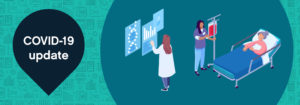There has been extensive conversation around Meaningful Use (MU) and the passage of Medicare Access and CHIP Reauthorization Act (MACRA). CMS announced earlier in the year a shift from MU to MACRA which streamlines the transition from fee-for-service to value. MACRA highlights three changes in how to pay those who treat Medicare beneficiaries, including:
- Ending the Sustainable Growth Rate (SGR) formula for determining Medicare payments for healthcare provider services
- Making a new framework for rewarding health care providers for giving better care not just more care
- Combining existing quality reporting programs into one new system
As the healthcare industry begins to move towards MACRA– how can providers and payers prepare? CMS outlines the Merit-Based Incentive Payment System (MIPS) as one of the quality programs that enable providers to map back to MACRA.
MIPS is a great program that helps providers evaluate performance from a variety of perspectives as it relates to quality and measure how they are offering care in a meaningful way. With a timeline put in place, how can healthcare organizations lay the groundwork to build towards it? Here are three areas to keep in mind:
- Technical Readiness – Do you have the appropriate analytics platform and metrics put in place? Analytics is the first step towards implementing MIPS. This aligns the organization by establishing benchmarks and goals, along with using data to properly track efforts.
- Collaboration between clinical and business departments – Are both clinicians and the c-suite aligned on results? This conversation is an important one to have. Clinicians and c-suite executives, although envisioning the same goal, have different methods in achieving them. Connecting and establishing a roadmap is crucial to keeping everyone honest and on-track.
- Close-eye on data – Data is key and with an effective analytics program it can shine a light on gaps in care. Data allows organizations to pivot strategies so that roadblocks are less costly and time consuming.
To learn more about how to effectively track towards MIPS – check out our performance management solution.
Get our take on industry trends
Data visualization: A picture is worth a thousand…healthcare data points?
The amount of data produced daily has grown exponentially with nearly 90% of the world’s data generated in the last two years alone. To ensure we can make sense of this data, analysts must find meaningful ways to present the information to their audiences.
Read on...How did we get here? Hospital analytics and the new normal
I have heard the word “unprecedented” so many times in 2020 that it has lost its significance; many of us have become desensitized to the extraordinary changes in the world this year.
Read on...How to help employer groups plan in a time of uncertainty
Employers and their sponsored health plans are thinking about next year’s benefit designs with a significant challenge not seen before: the effect of the coronavirus pandemic. There are important considerations to take into account before making any decisions about new or existing coverage. Becky Niehus, a director of Product Consulting at MedeAnalytics, explores these new issues and what employers can do to ensure employees are “covered.”
Read on...Healthcare’s return to “normal” after COVID-19: Is it possible?
As providers determine how to get patients to return to facilities for routine disease management and preventive screenings, opportunities are ripe for the application of analytics to triage at the right time to the right setting. Data related to COVID-19 will continue to flow rapidly, but there are possibly more questions than answers now about a return to “normal.”
Read on...


